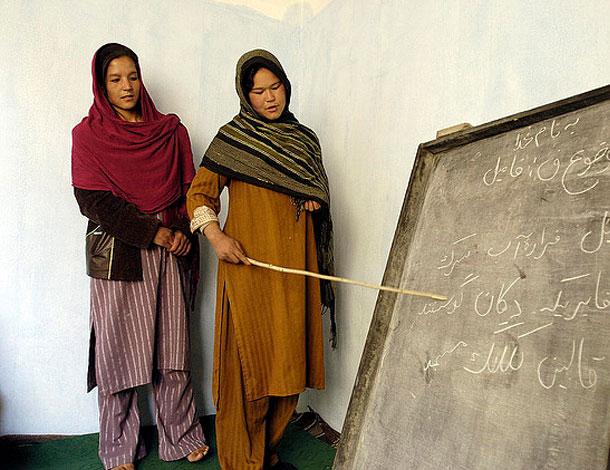Question marks over support for short-term projects run by UN population fund prompt concern over future of programmes in Syria, east Africa and beyond.
Funding cuts threatened by the Trump administration will jeopardise the lives of tens of thousands of women and girls, including many who have fled violence in Syria, Yemen and Iraq, campaigners warn.
A total of 27 short-term UN population fund (UNFPA) projects, worth almost $23m (£19m), are supported by the US.
The Guardian has learned that funding for these projects, mainly supporting displaced people, may not be renewed when their deadlines expire later this year.
The news comes at a time of increasing concerns over future levels of funding for women’s sexual and reproductive health and rights.
Delegates meeting at the UN Commission on the Status of Women (CSW) in New York this week fear Donald Trump’s reintroduction of the “global gag rule” will embolden right-wing conservative groups seeking to undermine women’s rights at the annual forum.
Nikki Haley, America’s ambassador to the UN, who has already expressed her strong anti-abortion views, is leading the US delegation at CSW. She has invited representatives from two conservative, anti-choice groups – the Center for Family and Human Rights (C-FAM) and the Heritage Foundation – to join her delegation, signalling a definite shift to the right in the US’s position at the talks.
Funding cuts for UNFPA projects in Syria would result in the closure of 119 mobile clinics and health centres that have allowed 48,000 women to give birth safely, and offered family planning services to an estimated 58,000 women. Also facing closure are 64 women’s centres and safe spaces to support women who have experienced sexual violence.
“We are facing quite a dramatic situation in Syria and surrounding countries,” said Klaus Pedersen, chief of UNFPA’s resource mobilisation branch.

Pedersen said the agency was appealing to other donors to fill its total funding gap of more than $700m until 2020. He hopes the UNFPA, the UN agency charged with protecting the sexual and reproductive health and rights of women and young people, will benefit from some of the $650m Canada recently earmarked from its development budget to support sexual and reproductive health over the next three years, and from money pledged at the She Decides conference in Brussels earlier this month.
As well as projects in Syria, Lebanon, Jordan and Turkey, UNFPA programmes in Somalia, Ethiopia, Yemen, Afghanistan and north-east Nigeria may be forced to shut down. A project in Haiti to repair clinics and restore sexual and gender-based violence services following Hurricane Matthew will close at the end of March if no extra money is found.
In a draft executive order leaked in January, the UNFPA was identified among the international bodies that would be subject to a funding review by the US government. The agency is the world’s largest provider of contraceptives and last year gave 12.5 million women in more than 46 countries access to modern forms of contraception and reproductive health services.
"Women are particularly vulnerable in humanitarian and fragile settings, where their bodies become battlegrounds."
Klaus Pedersen, UNFPA
In 2016, the US contributed $69m to the UNFPA – $31m towards the agency’s core costs, and the rest to support short-term, non-core projects such as those in humanitarian settings. In 2015, the US was the agency’s third largest bilateral donor.
“UNFPA leads UN work to ensure that the sexual and reproductive health and rights of women and girls are supported in refugee settings. Women get pregnant under all circumstances and are particularly vulnerable in humanitarian and fragile settings where women’s bodies become battlegrounds,” said Pedersen.
A report published by the agency in 2015 argued that women’s health needs in humanitarian settings were often regarded as an afterthought. But 60% of all preventable maternal deaths are estimated to occur in countries with humanitarian and fragile settings, equating to nearly 500 deaths each day.
Itumeleng Komanyane, international programmes network manager at Sonke Gender Justice in Botswana, said: “If you imagine the work UNFPA has achieved, to think in a matter of years you see that work regress, that is almost a human calamity.”
Read the original article from The Guardian
This content is republished as part of our content partnership with the Guardian and Mama Cash.
